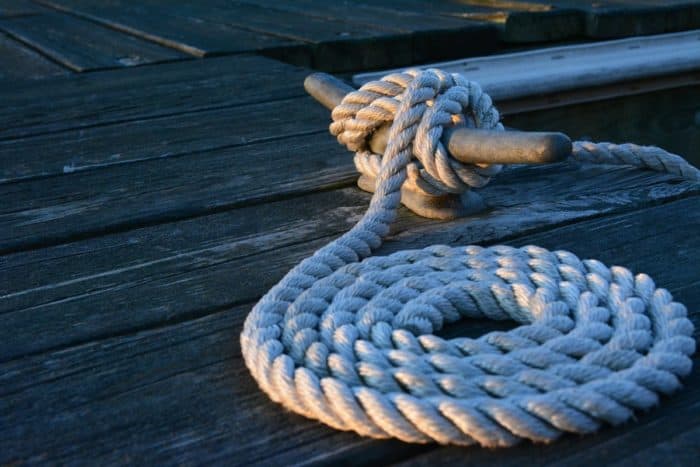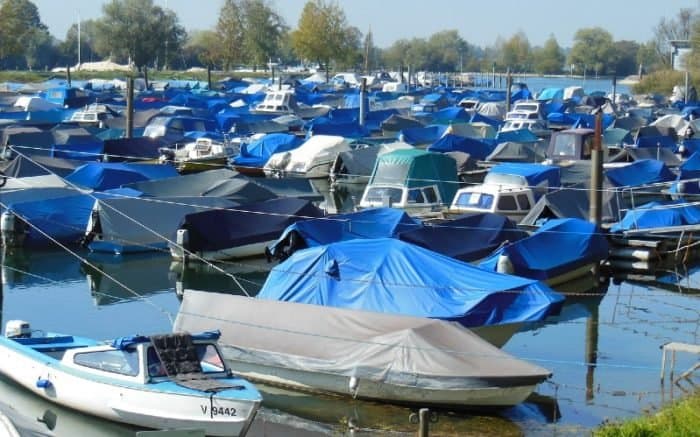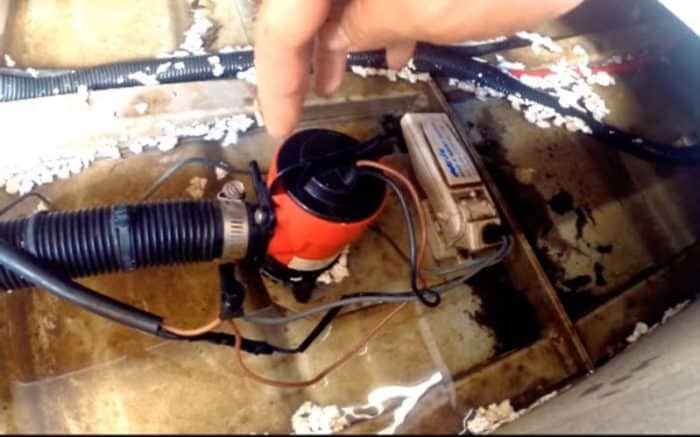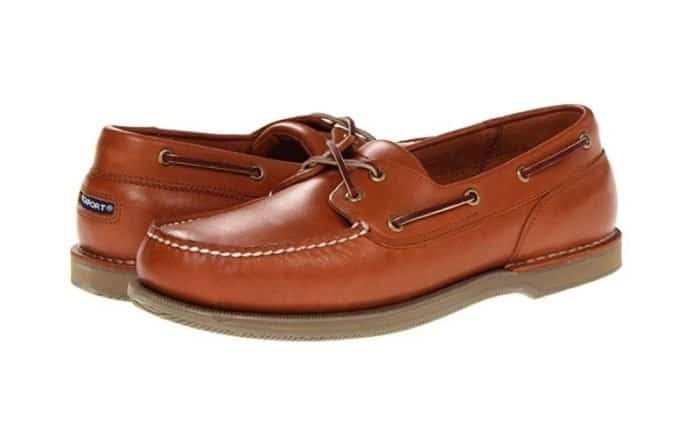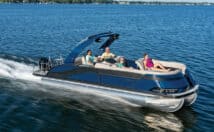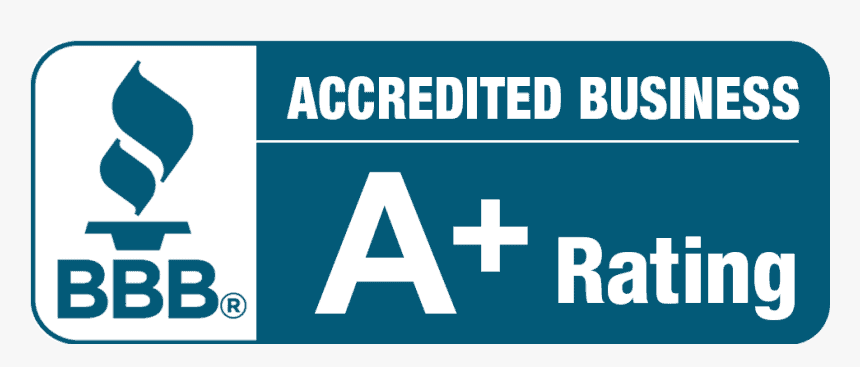Buying Your Own “Hole In The Water”
Buying Your Own “Hole In The Water”
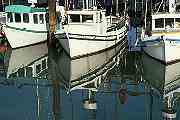
Look Before You Leap
Many people are unhappy boat owners because they buy the wrong boat. Before you dive head first into the world of boat ownership, ask yourself a few questions that will help you focus on the kind of boat you will need.
- Who will use the boat? Just family or will you invite friends? This may have a bearing on the size.
- How will you use the boat? Will you be fishing, water skiing, cruising, taking day trips, weekend trips or week long excursions?
- When, and how often, will the boat be used? Do you boat year-round or only seasonally?
- Where will you operate the boat? In lakes, rivers or on the ocean?
- How much can you afford to spend? Don’t forget the initial cost of purchase is just the beginning. There will be maintenance, insurance, registration fees and instruction and safety course fees.
- What type of boat suits your personality and temperament? Do you imagine getting from place to place with great speed or leisurely sailing to your destination?
Become An Old Salt
I’m sure there are many books on the subject of buying a boat that you could probably get at your local library or book store. Learn the terminology of boating, hang out at the local marina and talk to people about boats. By talking to boat owners you will find out what problems they have encountered and how different kinds of boats handle. You’ll also find what features they like and dislike.
When looking for a boat you will want to consider it in terms of:
- Safety
- Physical Condition
- Options and accessories
- Looks
- Performance
- Cost
New vs. Used
A brand, spankin’ new boat can be beautiful to look at but you should be aware that it can also have its own problems. Sure it’s under warranty and you don’t personally have to spend time on maintenance and repairs. However, you can’t use the boat when it is in the shop.
I could tell you a long story here but I’ll try to keep it short. I was recently employed by a very nice, and very inexperienced, couple to give private lessons on their brand new 42′ sportfishing boat. (I will not give the manufacturer’s name or that of the broker, who was to prepare and deliver the boat, in order to protect the guilty.)
This was a one-half million dollar boat and the new owners paid the broker $26,000 for prep and delivery, not to mention the $50,000 commission. Needless to say, the two weeks of training turned out to be less than ideal when the boat was continually torn apart to fix one thing after another.
Just to give you a feel for the disaster, some examples were:
- Electronics not installed
- Refrigeration did not work
- Generator would not start
- Boat was delivered with practically no fuel although the contract called for full tanks
- Shaft logs squealed to high heaven
- Stereo did not work
- …I could go on but I think you get the point
Needless to say, this couple were on the verge of getting out of boating before they got started. The point is, although a new boat is something to be treasured, it may be wise to at least consider a used boat.
Used boats don’t come without problems either and to find that perfect one can be a time consuming headache. If you are spending a considerable amount of money on a boat you might want to consider having it surveyed by a qualified marine surveyor. I stress qualified because at this time anyone can call themselves a marine surveyor. Ask at the local marina for a recommendation and make sure that they are a member of either, or both, of the marine surveyor associations. You can call the Society of Accredited Marine Surveyors – SAMS and they can recommend a surveyor in your area.
Become A Boat Detective
Whether you employ a surveyor or not, you should know some of the things to look for if you have decided to buy a used boat. A keen eye, a good ear and a checklist will lead you to potential problems. Some of the things to look for are:
- Mismatched paint. This could indicate that the boat has been in an accident and had repairs made. Although this in and of itself may not disqualify the boat, if you were not told of the repairs what else might you not have been told about?
- Does the keel run true in a straight line fore and aft? Is is straight horizontally?
- Do you see any apparent water lines inside the boat or on the engine. Look for a line that separates a rust free area on the engine and an lower area with a lot of rust. This could indicate that the boat took on water.
- On an inboard, does the shaft turn true or does it wobble? What about the prop – any nicks or cracks?
- Take hold of the prop and try to move it up and down and sideways. You should not be able to move it much. If you can, you have a worn cutlass bearing.
- Take a small rubber or phenol hammer and lightly tap the hull moving around the boat. If you hear voids in the fiberglass, that could be a problem of repairs, blisters, or delamination.
- Walk around the decks and on the bow – you shouldn’t find soft spots.
- How are the floors inside? Any soft spots?
- Is the steering free and easy to move?
- Is the upholstery in good shape?
- Check around hatches and windows – do you see water stains inside? If so, these will have to be rebedded to keep the rain and spray out.
- Is there any musty/moldy smell inside? This could indicate leakage, prior water damage or simply neglect.
- Make sure it is legal with all required equipment.
- Are the handrails bolted through and not just screwed to the surface? Are they secure?
- Look at the transom and check the hull identification number. Does it look like it has been modified? Does it match the number on the registration and or title.
- When you start the engine do you have good water flow?
- Check belts and hoses for cracks or wear. Even with low hours on an engine(s), rubber deteriorates just sitting.
- Check the oil and instead of wiping the stick with a cloth use your fingers, do you feel any grit? What is the color? How does it smell? Does it smell burned. You might want to send a sample of it and the transmission fluid to a lab for testing.
- Check the transmission fluid with the same process as the oil.
- Check the impeller and while you are looking at it throw it away and replace it with a new one.
- Check the strainer(s) for debris and clean if necessary.
- Test the seacocks to make sure they open and close.
- Does the transmission shift easily or does it “clunk?”
- See if you can get the maintenance records and review how the boat has been maintained in the past. Also look for reccurring problems.
- See if you can find the previous owner(s) and ask about the boat.
- Check both the BUC and NADA books to determine value range for this model and year. You can get these books at any boat dealer or a bank that does boat loans.
- If you are looking at an inboard/outboard make sure the tilt motor works properly.
- If you are looking at an outboard look under the cover for excessive corrosion.
This should keep you busy for a while and frustrate the seller, but I’ve seen too many people burned by what appears to be a good deal. Like anything else, if it appears to be too good to be true it probably is.
This is just a quick list of things to consider when contemplating the purchase of a boat. It’s not meant to take the place of employing the services of a qualified marine surveyor. A professional surveyor will check far more areas than we have the space to discuss here.
No matter where you buy your boat, remember that you, as skipper, are responsible for having the required safety equipment which is determined by the class of your boat. Do not assume your boat came from the showroom or factory with proper navigation lights, etc.
To Buy Or Not To Buy – That Is The Question
Many times it just doesn’t make sense to own a boat when you can lease, rent or charter one. Several years ago, when I was the proud owner of a large sail boat, my marine insurance policy was up for renewal. Unfortunately, I was also the owner of a career and, as many of us tend to do, was absorbed in my work and rarely had time to use the boat. When my insurance bill came, I thought perhaps I should calculate how much this asset, that I was neglecting, was costing me. During the prior two years the boat cost approximately $6,000 every time I used it. I immediately became a motivated seller, since I knew I could charter the same boat in the Caribbean for about $3,000.
There is much more to the expense of owning a boat than just the 20 percent down payment. You need to consider all the factors to get a complete picture of how big that hole in the water really is. The following worksheet should help put things in focus.
|
ITEM |
ANNUAL COST |
|
Monthly Payments X 12
|
$
|
|
Registration Fees
|
$
|
|
Equipment
|
$
|
|
Insurance
|
$
|
|
Trailer Registration
|
$
|
|
Dock Fees
|
$
|
|
Maintenance/Repairs
|
$
|
|
Taxes
|
$
|
|
Fuel and Oil
|
$
|
|
Winter Storage (if needed)
|
$
|
|
Total |
$
|
Now that you have estimated the cost of ownership, shop around and price renting, leasing, and chartering. If the use of your boat is limited by season or other factors, it may be the wiser choice.
Now that I have thoroughly frustrated and confused you on the ups and downs of boat ownership, don’t be discouraged. Owning and caring for a boat can be a very pleasant experience. It can be a relaxing diversion from an otherwise hectic world. It is a sport in which the whole family can participate.
An important note to end on: when you do become a new or used boat owner, be sure to take a boating safety course. Make sure that everyone who will be riding in or operating the boat takes a boating safety course as well. If you are a family of boaters, take the course together. You might be surprised at what you don’t know.
Categories: nauticalknowhow
